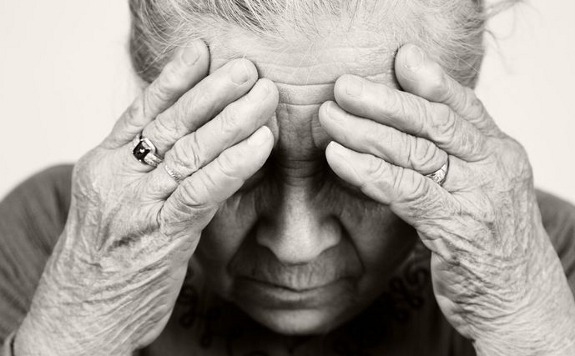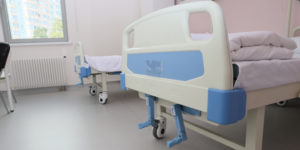5 secrets your line staff doesn’t want you to know
Click-clack. Click-clack. The administrator’s shoes made a sound distinctly different than the rubber-soled heels of the nursing staff, alerting everyone to a foreign presence. Forced smiles and stiff greetings ensued. As the elevator doors closed, and the administrator disappeared behind them, the line staff heaved a collective sigh of relief and got back to business as usual.
Do you ever wonder what goes on after you leave the floor? Do you wish you could be a fly on the wall, observing without changing the behavior of the people you’re watching? Wonder no more, as this nursing home psychologist reveals the secrets they don’t want you to know (but you should!), and offers suggestions to help.
1. They’re using their cellphones.
“Yes, we know it’s against policy, but we’ve got families and … stuff. Besides, the doctors are talking on their phones right at the nursing station. And so are the residents!”

The security guard might be hounding everyone, but the medical concerns raised by early cellphone use no longer hold true today. According to the Mayo clinic website, it’s fine for people with pacemakers to talk on mobile phones (but not to put them in their chest pockets), and Dr. Harvey B. Simon, of Harvard Health Publications, states that cellphone signals disrupt less than 4 percent of medical devices when held fewer than 40 inches from the device.
A policy that allows staff to use phones during break times only, and in specified locations, would be more realistic. It would also prevent them from having to hide behind the curtains in resident rooms.
So what’s the greater danger of cellphones in long-term care? Not cleaning them regularly. Include sanitizing wipes in the break room.
2. Nurses are winging it when it comes to managing the floor.
“Yes, some of us have been doing this a long time and have learned a lot along the way. But management training would help us make better use of our time—and talents.”

Customer service, time management and staff supervision can all pose challenges, especially when important medical responsibilities are a top priority. How do we present a calm, attentive face to the family demanding attention at the desk when there’s an emergency in room 309? What do we do when the aides nurses rely on are having an argument?
Training your nurses on these essential job functions will help them be the best possible nurses. Consider nurse competencies that teach communication skills, or an in-service on proper nurse delegation.
3. They don’t know every medical diagnosis.
“What’s Friedrich’s ataxia?” the psychologist asked the charge nurse, trying to get more information about a resident who’d just been referred for psychological services.
“I don’t know,” the nurse admitted. So they researched it instead on a cellphone. But how many people will take the time to do that?

Educating staff on the special needs of residents with less common illnesses will go a long way toward reducing resident discomfort, allaying the concerns of residents and their family members, and providing high quality care.
Summarize staff training in a brief memo. Imagine if the nurse could say to a new aide, “Before you start helping Ms. Smith, please read the note about how to manage her osteoarthritis. It’s in a plastic folder in her top drawer.”
4. Nursing assistants don’t always provide maintenance physical therapy when they’re supposed to.
“We want to be able to walk with the residents. We really do! But there are so many other pressing needs to attend to.”

Help nursing aides by dedicating a couple of staff members to maintenance OT and PT, thus ensuring compliance, relieving your nursing assistants of this task and having very experienced “walkers” who can liaison with the rehab department.
While you’re at it, start an exercise group open to all residents to add a “wellness” element to your offerings and to better identify residents who could benefit from another round of rehab.
5. Residents’ mental health problems aren’t being handled appropriately.
“Depression, anxiety, psychosis, substance abuse, suicidal thoughts—the brief time we spent on this in school didn’t prepare us for the realities of resident care. Yet we feel expected to know what to do.”

Give staff some training—notice a theme?—so they can recognize when your residents need help. And provide them with reliable mental health professionals they can turn to for assistance.
Set policies and procedures so staff knows what approach to take when a resident comes back from med pass intoxicated. Establish environments that encourage good mental health for the residents—and for all staff as well.
Eleanor Feldman Barbera, PhD, is an author, speaker and consultant on psychological issues in long-term care. For more information, visit Dr. Barbera's website, www.mybetternursinghome.com.
I Advance Senior Care is the industry-leading source for practical, in-depth, business-building, and resident care information for owners, executives, administrators, and directors of nursing at assisted living communities, skilled nursing facilities, post-acute facilities, and continuing care retirement communities. The I Advance Senior Care editorial team and industry experts provide market analysis, strategic direction, policy commentary, clinical best-practices, business management, and technology breakthroughs.
I Advance Senior Care is part of the Institute for the Advancement of Senior Care and published by Plain-English Health Care.
Related Articles
Topics: Articles , Facility management , Staffing











